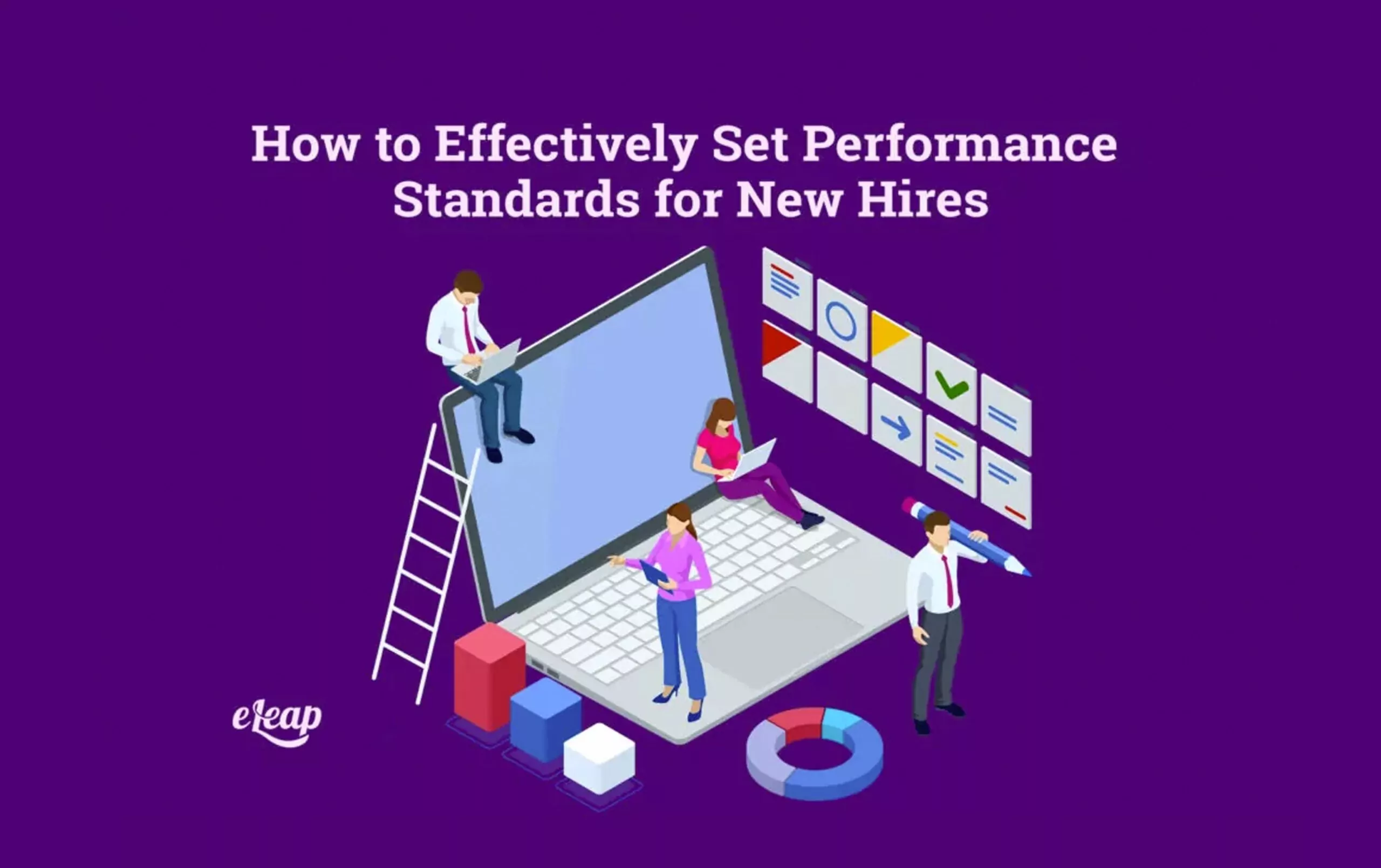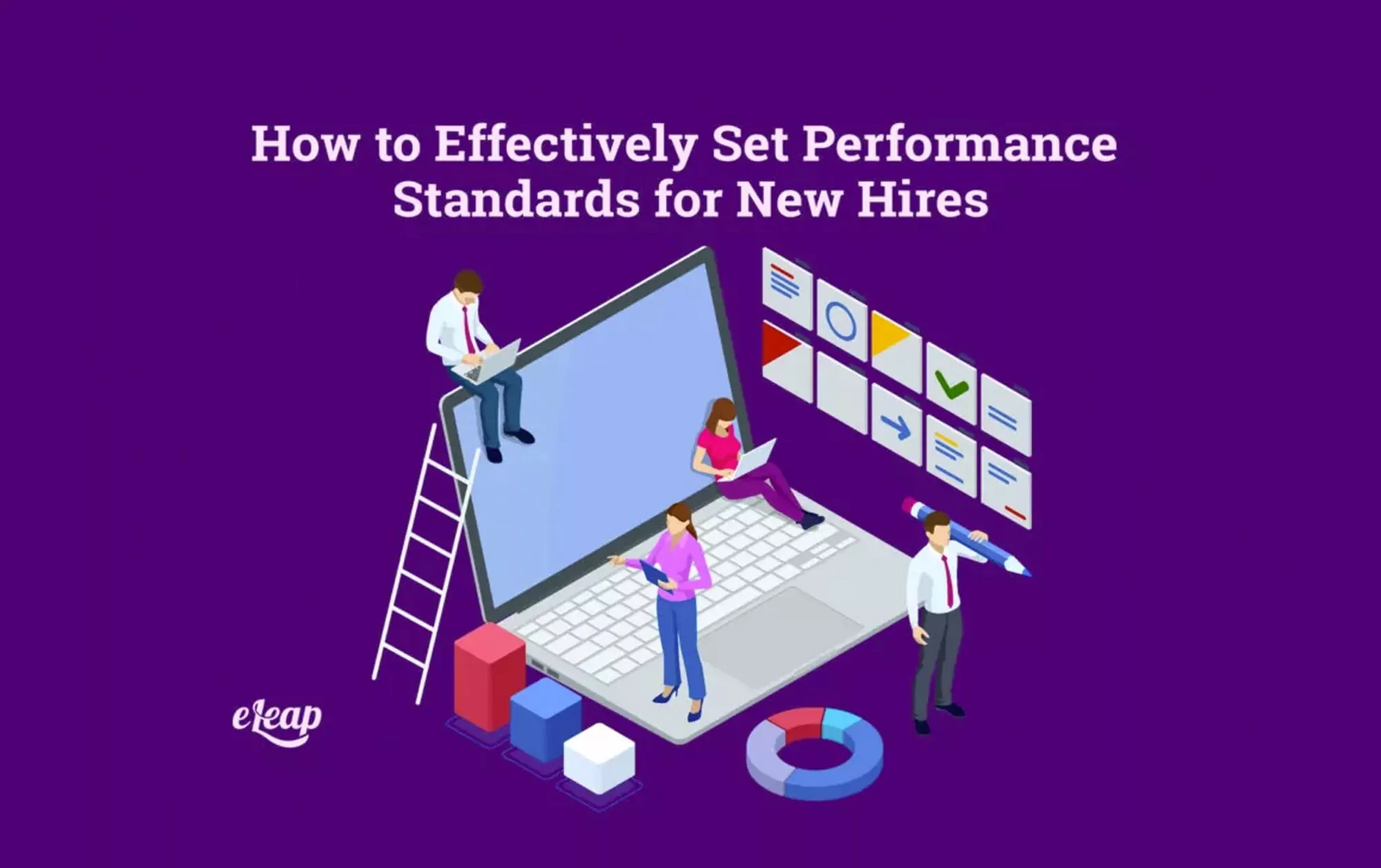How to Effectively Set Performance Standards for New Hires

When you first hire a new employee, there are innumerable things that need to be taken care of. New hires need to be put through orientation, onboarded, and familiarized with the company and job position during this time, but what about performance standards? Thinking about setting performance standards often isn’t top of the list when bringing on a new employee. But actually, it’s critical that these standards are set as early on as possible.
While new hires are provided with all the necessary information during the first few days on the job, some managers may find it challenging to maintain a similar level of performance while they are still learning. However, with a combination of formal and informal training with precise assignments, ensuring that employees understand their roles won’t be too difficult. Once an employee has been properly trained, it’s critical that the high-performance standards and expectations that were set from the beginning continue to be maintained.

Formal Training and On-The-Job Training
One of the most effective ways to train new employees is to put them on the front line, so they can both get familiar with the work and learn about standards. Of course, make sure they have plenty of guidance when undergoing on-the-job training. There’s a very big difference between guided, well-managed, on-the-job training and being thrown in the deep end and expected to perform without any help. In fact, this hands-on training experience is so critical that the vast majority of new employees rank on-the-job training as the most important part of their first exposure to a new job or position.
Of course, on-the-job training can’t be solely relied upon to provide new hires with a thorough training experience. Formal training is also needed to create a well-rounded, high-performing employee. A combination of formal training and on-the-job training can provide a solid foundation for a new hire. What’s more, if you hire numerous employees at once, there’s an extra advantage. Due to a large number of employees learning at the same time, you have an excellent opportunity to set performance standards. All your new hires will therefore be familiar with the company standards if they attend the same formal training sessions.
Provide Quality Coaching to Enhance Performance
Ensuring your leaders are thoroughly trained in proper coaching techniques is a critical component of well-trained, high-performing staff. Managers have the ability to drastically improve and maintain the performance of their teams if they know how to coach well. Coaching should be seen as a collaborative, ongoing process that promotes employee development over time. But, while a good stepping stone, it’s not a tactic for setting performance standards by itself. Coaching needs to be used to maintain performance standards throughout an employee’s time with an organization, starting from when they are new hires.
Ensure Employees Are Given Meaningful Work
There are many ways to motivate employees, including giving them novel, meaningful tasks that encourage them to learn more and grow within an organization. Meaningful work can help employees gain an understanding of how the business works. What’s more, meaningful tasks help employees to grow, which is a key component of good performance. Employees who feel like they’re stuck in a mundane, dead-end job simply won’t perform to a high standard.
Getting immersed into your organization’s work and working dynamics will give your new hire the best chance to thrive. The incoming workers should be assessed for their capacity to handle independent work. The first couple weeks of a new employee’s employment with your organization will be extremely challenging. Make sure to reward them for their abilities to multi-task and manage everything and anything that you throw their way. Of course, ensure employees are equipped to handle tasks before you assign them. Giving new hires a job that they feel incapable of completing due to improper training or the need for skills they haven’t yet acquired will set them up for failure.
Ensure Your Organization Has a Culture of High Performance
You can’t expect your new hires to perform to a high standard if you don’t expect the same from all your other employees. Leaders who allow any of their team members to perform at a low standard without addressing it are indirectly communicating that poor performance is acceptable. Sure, your new hire might start out performing well, but if they notice other employees aren’t doing the same, they may soon slip to the same level.
Without a general culture of high performance, you’ll never manage to keep your new hires motivated to perform to the best of their abilities. In order to ensure that all your employees perform as well as possible, new hires included, this needs to be part of the culture. This means addressing poor performers and nipping performance problems in the bud in real-time. Leaders should never sit back and hope that someone who is performing badly will get their act together without direction. Once other employees notice that poor performance goes unnoticed, they might start to follow suit. Before you know it, you’ll have an entire team of underperforming employees, which will have detrimental effects.
When hiring new employees, getting them up to speed and properly trained isn’t always the easiest of tasks for managers. It takes time for them to learn everything about the company and the position they hold, even after their first few days or weeks on the job. Remember, they will have a better idea of what is expected of them if they are trained both on the job and in a formal setting.
Once training is completed, it’s critical that leaders set and maintain high-performance standards. It’s important to note that good training is key and foundational to high-performing employees. If training isn’t completed thoroughly, then it’s not fair to hold new hires to performance standards that they aren’t equipped to meet.